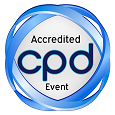Carol Eliadi
MCPHS University, USA
Title: Using Standardized Testing Outcome Data to Improve Teaching and Learning
Biography
Biography: Carol Eliadi
Abstract
Overview: Standardized testing is used across the BSN curriculum in this School of Nursing located on three campuses in two states. The standardized exam represents the final examination in all courses (with the exception of Nursing History and Informatics) and is worth 25% of the overall course grade. While cumulative standardized testing is also a requirement for program completion, these exam scores are not used to determine the individual’s subsequent eligibility to graduate and to sit for the NCLEX examination. Standardized exit examinations are administered in order to benchmark cumulative learning and to provide the student with a content directed ‘road map’ from which to prepare for success on the NCLEX examination. Aggregate standardized test results are not used as a component of the formal faculty evaluation but are useful to many faculty in their own personal self-assessment. Objectives: 1) The reader will understand the many benefits (to faculty and students) of implementing standardized testing throughout the curriculum of the undergraduate nursing program 2) The reader will learn how standardized testing can be incorporated across the curriculum Background:The requirement to pass a standardized test as a prerequisite for student progression in nursing programs is an intensifying trend. Because the test scores can sometimes result in course failure, block graduation or deny eligibility to take the NCLEX exam, such testing is called "high stakes."Though licensure exams such as NCLEX are themselves high-stakes, for students, faculty, and schools of nursing, there is no debate about the need to protect the public through standardized evaluation measures of nursing competence (National League for Nursing, 2010). Test results can be used to provide students with information about their knowledge as compared to other students using national norms, to benchmark student performance internally, and to help faculty identify curricular strengths and weaknesses in the spirit of continuous quality improvement. Most commercially available standardized predictive tests provide individual student scores that are linked to a probability of passing the NCLEX-RN. Research has shown that while predictive tests often work well in identifying high-performing students likely to pass the licensing exam, they are much less precise in identifying individual students who will fail the NCLEX. Results:Standardized tests are designed to measure learning and testing abilities at a point in time. They also serve to identify nursing knowledge deficiencies and to aid in the development of student self-remediation plans. Through regular exposure to computerized testing, students also gain confidence with this testing format. Faculty need to be mindful that tests and evaluative measures are used not only to evaluate student achievement, but also to support student learning through remediation, and evaluate and improve teaching and program effectiveness. The NCLEX pass rate improved from 72% to 91% in one year with the implementation of standardized testing across the curriculum. NCLEX scores have remained consistently above state and national scores and this has largely been attributed to standardized testing as implemented in the SON. 100% of the SON faculty across the three individual campuses supports standardized testing as a component of student evaluationrecognizing thatmultiple sources of evidence are fundamental in evaluating basic nursing competence. Conclusion: There are benefits to both students and to faculty when standardized testing is incorporated into the curriculum. Faculty need to be informed about the purpose, use, scoring and results of standardized tests and testing methods within a program and this information needs to be shared with students to minimize the apprehension often associated with standardized testing. The effective implementation of standardized testing in the SON can provide evidenced based data to support ongoing quality improvement in teaching and learning, andcreate a climate where results from the assessment can be used in the aggregate to inform program improvements.

